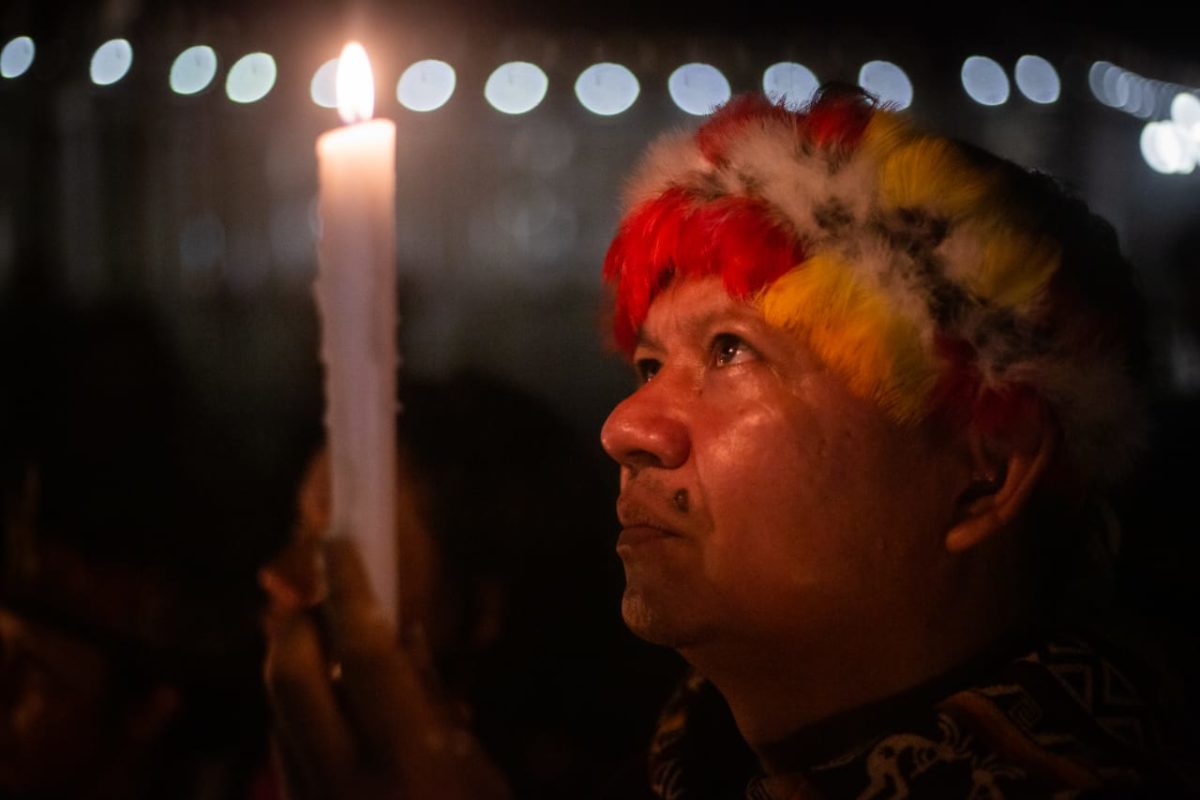By CIDSE Secretary-General Josianne Gauthier
Nearly three weeks have passed since the end of the Special Synod on the Amazon, and this powerful experience stays with me as I attempt to collect my thoughts and impressions. I was invited to join the Synod as a special guest, but I was there in the name of so many others who were following the Synod with curiosity and hope: CIDSE, our members, countless colleagues, volunteers and supporters, and partners across the globe.
And now, they turn to me with expectation. What does this mean for us, as CIDSE, as a network of social justice and global solidarity organisations? What do we do with the outcomes? What is our role as Catholics, as Europeans and North Americans? More broadly, what does it mean for the Church, in the Amazon and in the world? I have already responded to many questions from the media, from colleagues, from friends and still I am struggling to convey the depth and breadth of what occurred and its potential impact on our lives. We cannot yet measure where this path will take us.
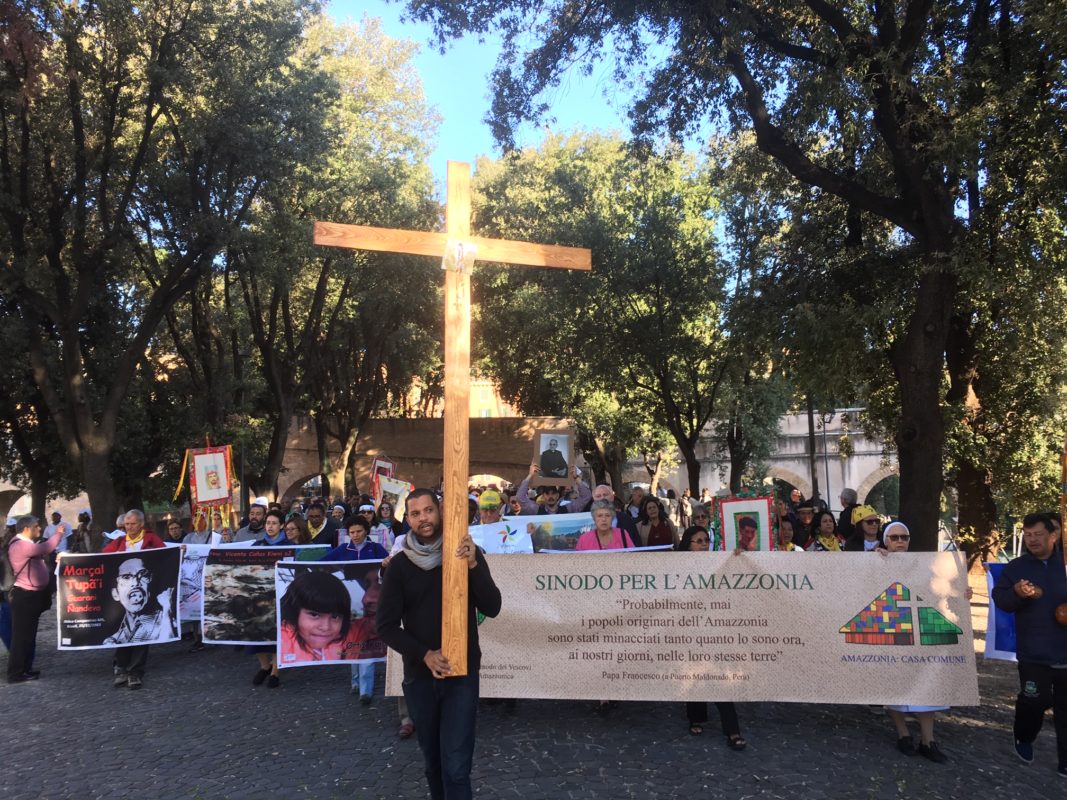
Strong foundations
In October of 2019, over two hundred people gathered for three weeks in Rome, inside the Synod Hall to discuss Integral Ecology, the Amazon, and the Church. In the spirit of Laudato Si’, this Synod embodied the notion that we cannot disconnect our pastoral and spiritual needs and selves from the environment in which we live and breathe. Integral ecology teaches us that there is only one complex and interconnected crisis. The way we treat each other is interlinked with how we treat Creation as a whole. One after another, the testimonies of the participants pieced together the story of the people and land in the Amazon and their relationship to the Church.
The expertise of the participants was humbling. Each one coming from a different region, a community, and bringing forward testimony of the work of the Church to protect and defend life and fight for justice, often in extremely dangerous contexts. They testified of the threats of foreign companies, the oppression of Indigenous culture, the destruction of our Mother Earth, the violence of everyday life in the Amazon, but also the strength of the community and of their faith.
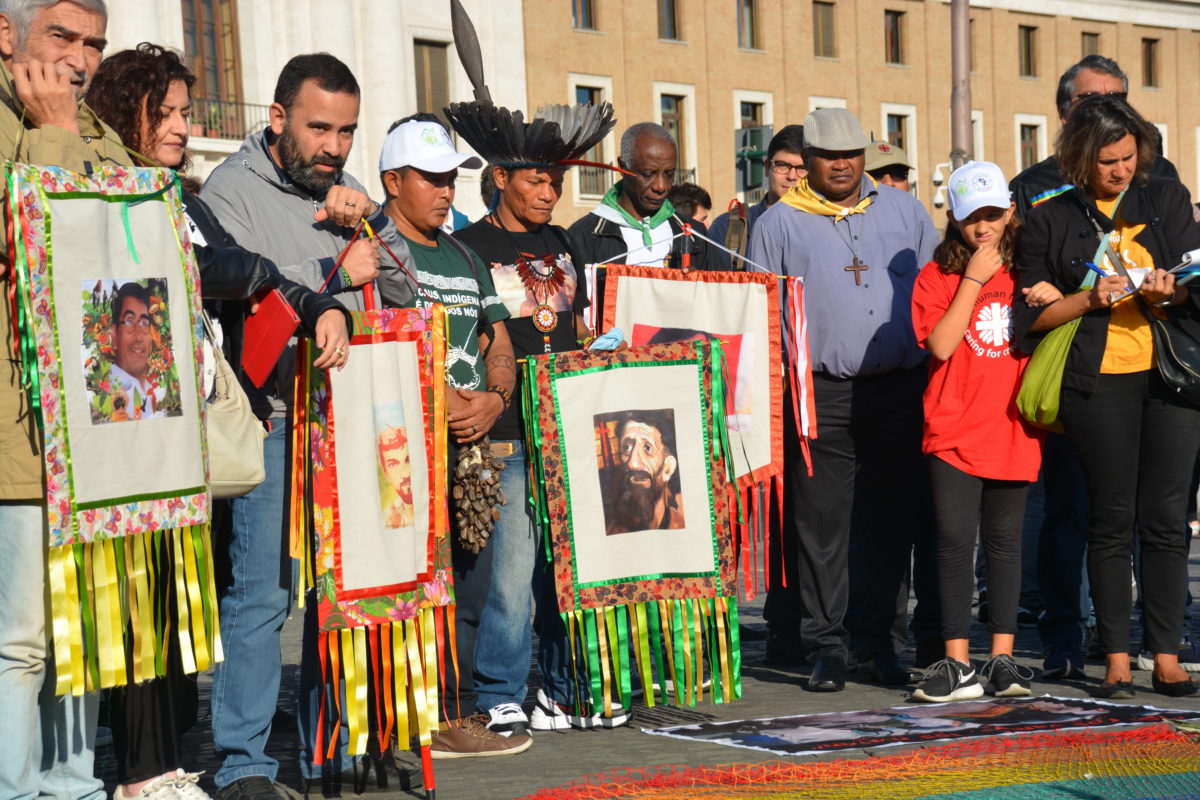
To connect is to listen
These 230 participants were only part of the story. Synodality, as Pope Francis speaks of it, requires for all voices to be heard with humility. The Synod was not just a three-week conference, but a process which began over a year before by listening to the Pan-Amazon communities. This original spirit of engagement, inclusion, listening and respect was carried into the Synod hall. And thus, the stories we shared and to which we listened were not only those of the 87 000 people who were part of the consultation process leading up to the Synod, but also of the communities who came before us, and those who we encounter every day.
Even outside the Vatican walls there were crucial caring voices. Hundreds of people came to Rome during the Synod to be part of the “Amazonía Casa Común”, a space of prayer, solidarity, and action for the Amazon in parallel events. These extraordinary people held us in sacred circle, protecting us inside the Synod from the critics, the negativity, the ignorance, and the doubts. Through their love and prayers, they kept us strong, steady, and peaceful, enabling us to concentrate on the discussions inside. We needed their support more than they may ever realize.
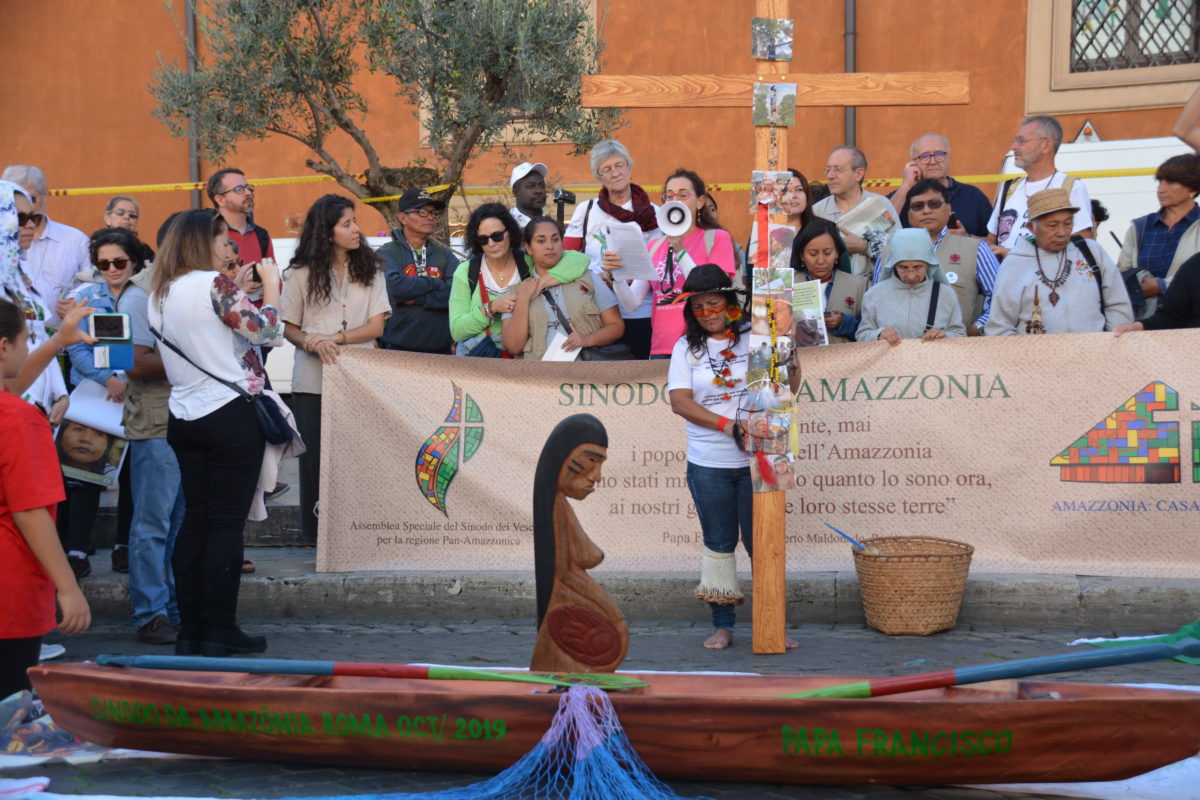
Raw power from the bottom up
Colonialism was an intense central theme, in which the voices of the Indigenous and Traditional Peoples guided us throughout all of our discussions. We tried to understand the sources of our story of colonialism, and its historical implications for our society and for our Church. We reviewed its ongoing impacts in international relations, trade, and the exploitation of the Amazon people and resources. The voices, knowledge, and experiences of Indigenous and Traditional Peoples -their rights, their culture, their suffering, their spirituality, their courage, and their story – were front and center. This is part of a deeper and longer process of decolonization, unlearning and relearning that we all underwent and which must continue beyond the final document. We must allow these messages to transform us and make room for our collective and individual conversion.
This conversion, especially the ecological conversion which fills Chapter IV of the Final Document, could have political implications. Pope Francis spoke plainly of ecocide and of ecological sin in his interventions and writings. For Christians/Catholics, the implications are evident and significant. This conversion reveals to us the responsibility of our privileged societies – particularly in Europe and North America – for our extractivist economies, our consumer desires, and the threats to life in the Amazon. We are being called quite clearly to radically change our lifestyles, our economies and our policies. Justice is not optional, but a tenet of our faith. Our conversion is required so that we may reconcile with our Creator, our brothers and sisters, and the Earth and all life on Earth, and future generations as well.
The women present deeply inspired and awed me, as a lay woman participating in a Synod of the Bishops for the first time. These women, from all parts of the Amazon, reflected many different views and identities: Indigenous, Lay, and Religious. They were strong, they were listened to and they commanded respect and called for action. The raw power of their courageous testimonies in and out of the Synod discussions, as well as their invaluable contribution to the life of the Church in the Amazon, shows a love for humanity and for our Common Home which came through with passion and urgency. I learned a great deal from every one of them and know that this too is part of the profound and illuminating change in the Church which must continue after the Synod.
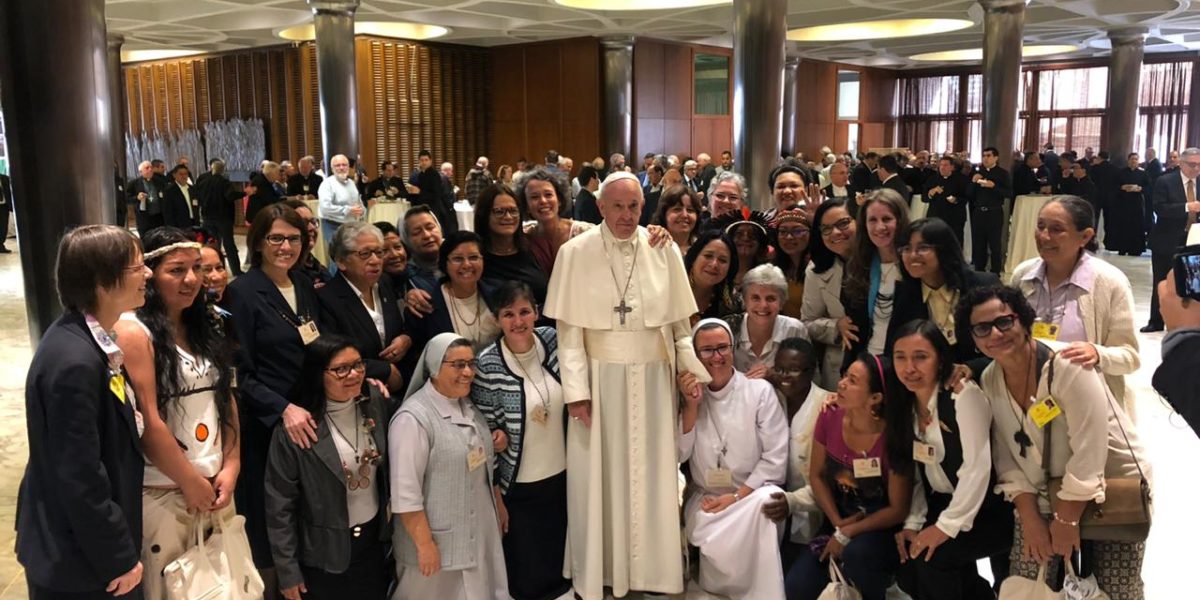
Ever forward, ever changed
A new pathway for integral ecology has been opened in the Amazon and we are all called to join in.
Almost all the issues that were discussed in the Synod were of direct relevance to CIDSE’s work and mission: extractivism, ecological justice and conversion, intergenerational justice, systemic change and the urgently needed transformation of our lifestyles (through our consumption and production patterns), the protection and defense of human rights and social justice, integral ecology, and dignity.
We applaud and celebrate the powerful language on ecological justice, ecocide, the economy that kills, and the messages to decolonize our minds, our hearts, our politics and economies, and the call to conversion.
Now, we need eachother. As we continue to push for transformative change, we need to nurture fair and just relationships with each other and in our work alliances. We must reach out within and beyond the Church to build on our shared values and strengths and move forward together.
We cannot stay silent, we cannot lose courage, or lose sight of our commitment to bring these messages of justice and of another way of living into our own territories. Too many lives have already been threatened or taken in the name of progress, and so the resounding message that stays with me after this experience is one that Pope Francis gave to the participants at the opening of the Synod: “Listen with humility, speak with courage”.
